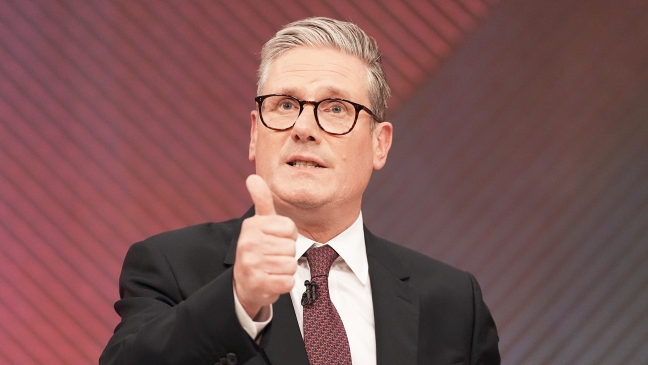You see and hear versions of the following a lot when you loiter on “edutwitter” or in the conferences of edu-policy land: “The thing is, I’ve got no idea what Labour will actually do in terms of education policy. I don’t understand what it is they believe in. Where’s the ambition?”
Whenever it happens, I let out a big sigh.
Depressingly, there will also be a bunch of people repeating this often-unchallenged suggestion following the launch of Labour’s manifesto.
“Where’s the big idea?” They’ll be asking, and then harvest a few “likes” and emoji responses.
Labour Party education pledges
And so, exasperated, I say this in reply to all the poopooing: a complete review of all curriculum and assessment right up to aged 18; a huge overhaul of how Ofsted inspects and reports (including abolishing the hated one-word judgements); a new focus on the creative arts and the co-curriculum; a prioritisation of recruitment and retention (a target of 6.5k extra teachers); a universal breakfast club offer; a new state nursery building drive; a target of half a million more children achieving their early learning goals; a mental health professional in every school; and serious new funding for Child and Adolescent Mental Health Services (CAMHS).
And breathe.
That list isn’t exhaustive - and of course, there are areas missing, and areas where more detail would be welcome - but can anyone seriously tell me that isn’t ambitious?
Schools’ policy
Can anyone seriously tell me that if all of that is accomplished, that schools - and the lives of teachers - in this country won’t look markedly different at the end of a five-year term of government?
Can anyone seriously tell me that such a programme of reform wouldn’t mean that education was right up there as a defining mission in the life of this nation?
I will go further. If you look hard at the way Labour and its shadow education secretary have explained their educational philosophy: we’re actually looking at a step-change in the way the government thinks about young people and how the state supports them to achieve their potential.
Social change through education
Perhaps best articulated in Bridget Philipson’s speech at the Centre for Social Justice at the start of this year, a Labour government would surely move away from the idea, ascendant in the last decade (and more), that what happens in the classroom can be a magic bullet to fix many of society’s ills.
Instead, it’s become clear that a Phillipson-led DfE will (to paraphrase John F. Kennedy) not ask what schools can do for society, but instead ask what society can do for schools.
A Labour government will certainly be about empowering schools to be incredible civic anchors in their communities, but will also recognise that they can’t transform lives on their own. Labour ministers will understand, articulate, and act on the fact that young people from deprived homes with poor backgrounds need social, emotional and, yes, financial support if they are to thrive and grab all the opportunities that should be open to them.
SEND and AP reform
It is clear to me, as someone who spends a lot of time thinking about how any future government must improve the lives of our most vulnerable young people, that rebuilding the structures around the edges of mainstream schools (children’s services, alternative provision, Sure Start, CAMHS, youth centres and the rest) will be a guiding principle every bit as important as what actually happens in the classroom.
There is, of course, much more that could be done - and that should be done. Most obvious to me, is the leviathan task of rebuilding (and possibly reimagining) what passes for a SEND system in this country. There is also the small matter that much of the built fabric of our schools is (in some cases literally) crumbling.
But please don’t think that a Labour government will not have ambition for schools, teachers or young people, because that patently is not true.
Jonny Uttley is a visiting fellow at the Centre for Young Lives




